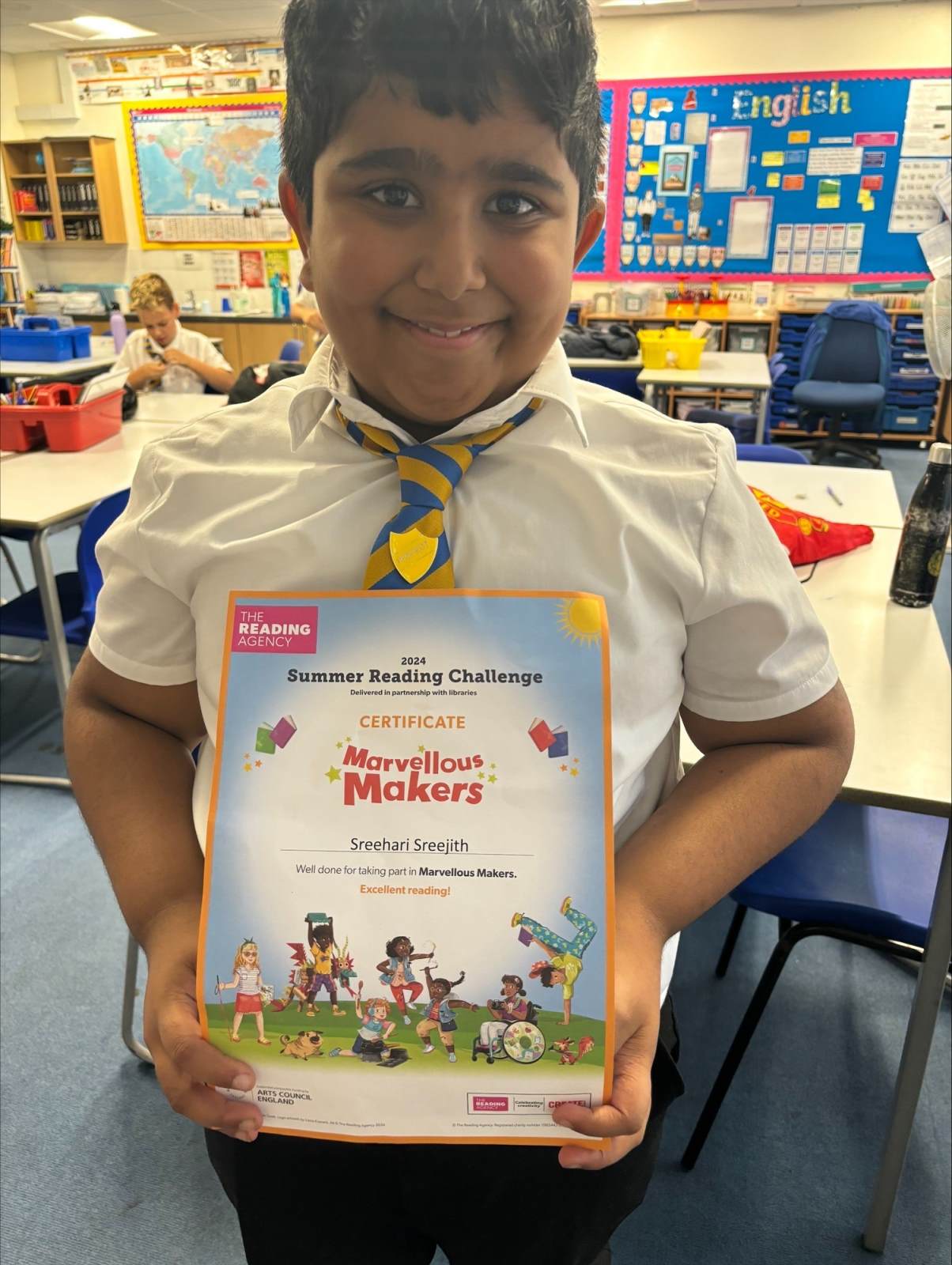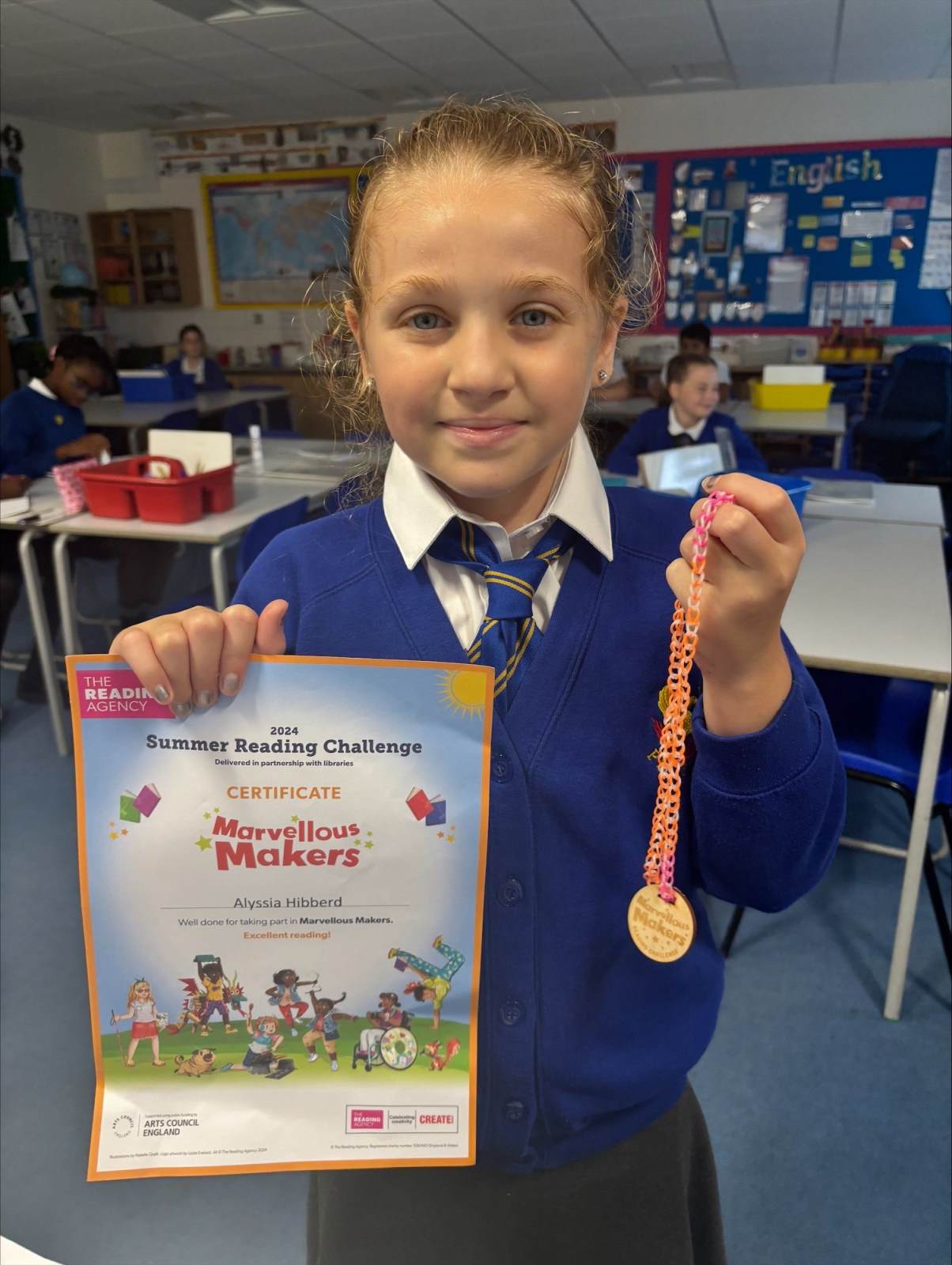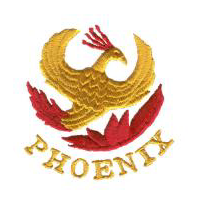English - Reading


What is the vision for Reading at The Phoenix Primary School and Nursery?
Intent
Our vision for Reading is to inspire a love of reading, allowing children to access a range of texts and resources to enhance their imagination and understanding. We aim to support children’s reading skills to decode, comprehend and retell stories, poems and non-fiction information. We will develop their reading and comprehension skills through targeted reading programmes, an exploration of a range of texts and genres and use of high-quality questioning to enhance and develop awareness. We will develop their use of vocabulary, exploring key terminology and subject specific terms. Through reading and story opportunities, children will be encouraged to explore a range of text types and components which make up various text types.
The reading opportunities they are given will support them to:
Have a love of reading and understand the potential offered by books e.g. developing knowledge and understanding, awareness and tolerance of other perspectives, an insight into the craft of the writer, etc
Have access to quality texts (including electronic books) every day and understand their relevance.
Read with increasing confidence, fluency and understanding, orchestrating a range of independent strategies to self monitor and correct.
Understand the phonic and spelling system and use this as a strategy to read accurately.
Reading is promoted across the school and all children are encouraged to explore a wide range of texts from a broad a range of cultures as possible, which reflect both personal interests and academic pursuits and which instigate a curiosity of the world around them.
How is this vision for Reading to be achieved?
Implementation
Children engaged in Reading activities throughout the school will:
- Have access to a wide range of texts, both fiction and non-fiction
- Have the opportunity to read a wide variety of non-fiction, which includes current high-profile topics such as climate change.
- Develop a curiosity about words, language and their meaning.
- Be exposed to and develop an understanding of a range of text types and genres.
- Begin to evaluate and justify their book choice preferences.
- Develop powers of imagination, inventiveness and critical awareness based upon their reading experiences.
- Share and celebrate reading achievements, showing pride in their ability.
- Be provided with opportunities to share their reading experiences with their peers and carers.
- Have opportunities to engage in the school library, with encouragement to explore options in their local environment.
- Engage in regular Reading topics, such as World Book Day and Readathon.
Upon entry into the EYFS, be immersed in a book- rich environment where discussions about books are actively encouraged. Children are encouraged to retell these known stories through small world play and role- play. This allows children to develop story language and implement it orally.
Across all key stages, take part in daily ‘Listen Up’ sessions where books are shared as a class, in small groups, with partners or individually. Questioning is used and covers all reading domains to ensure children understand the text and their thinking is challenged.
Encouraged to read across the curriculum. At our school we believe it is important for pupils to be able to have a multi-faceted approach to their reading skill depending, on the subject they are studying. We consistently choose texts and develop skills that would help in key areas of various subjects. For example, effective research technique in history, understanding and use of subject specific vocabulary, ability to reference in order to provide evidence.
Develop their fluency over time. Teachers use carefully selected texts to cover various techniques that will enable pupils to become more fluent, thereby opening them up to a wider world of literature. It is a firm belief at our school that fluency is just as key to being a successful reader as comprehension skills are.
Deepen their understanding of different text structures which are a key part of our teaching sequence, often being the starting point of a unit of work. Class teachers choose texts that appeal to and challenge the pupils within their classes.
Have the ability to understand a text and discuss the key issues within it. Through this understanding, they will develop a love of reading that will grow as their school journey continues.
Access a reading scheme in EYFS and KS1 that promotes understanding and development. Our use of Read, Write, Inc closely follows our reading scheme, allowing pupils to develop confidence in their reading and make rapid progress. This enables pupils to experience a wide range on texts at an early age.
Receive feedback from their teachers, and other adults, regarding their reading skills. Teachers will feedback verbally to pupils explaining how to develop their answers and what skills they can use to help solve any barriers to reading. Through this communication, pupils are able to build resilience and confidence when reading more challenging texts.
Read in various contexts so the skill is embedded in everyday life and regarded as a life skill. Pupils will read independently, in one-on-one situations with another adult, as part of a group or a class and at home independently or with family members.
How does the school know if the Reading curriculum has been effective?
Impact
Firstly, children who have followed the school’s Reading curriculum will be thoroughly equipped with a range of strategies to decode words and comprehend the content of texts to enable them to access the more specialised curricula at KS1, KS2 and Secondary school. Furthermore, the emphasis on comprehension in reading will have prepared children to explore and discover the world and use this skill in their everyday life. Our Reading curriculum will develop competent readers who can eventually function effectively as literate adults in society. Some children may even eventually be so inspired by what they have read, they go on to achieve things they did not know where possible until their eyes were opened by experiences in books.
Assessment
Children are assessed on their reading ages and fluency during alternate half terms. Presently we use the Toe-by-Toe reading test to assess reading ages (summative) and Tim Rasinski’s Multi-Directional Fluency Rubric (formative) to assess fluency skills.
Children are assessed using the Development Matters Statements and Read, Write, Inc half-termly assessment in EYFS and Year 1 (formative)
Children read regularly with an adult across EYFS and KS1; progress is logged in the class reading record folder.
Assessment ‘Bookmarks’ are used for reading observations where teachers can quickly evidence targets met, providing individualized assessment against curriculum markers.
Class Teachers collate Reading Age, fluency and comprehension progress to help form a holistic view of a child’s development within reading.
PPLs (Professional Partners in Learning) are regularly updated with regards to reading domains, allowing for all assessment opportunities to be discussed and logged with the Class Teacher. This allows for a range of questions to be asked, covering all reading domains. PPLs comments are used to help form an overall picture of a child’s ability.
Target Tracker is used to record progress and to carry out a statistical analysis of strengths and areas for development across the school.
End of EYFS, end of KS1 and end of KS2 data statutory assessments and data is completed.
/docs/Reading_Progression_Map_KS2_

 The
Phoenix Primary School & Nursery
The
Phoenix Primary School & Nursery